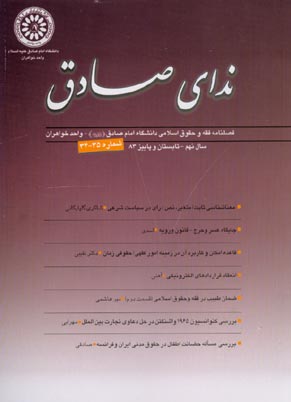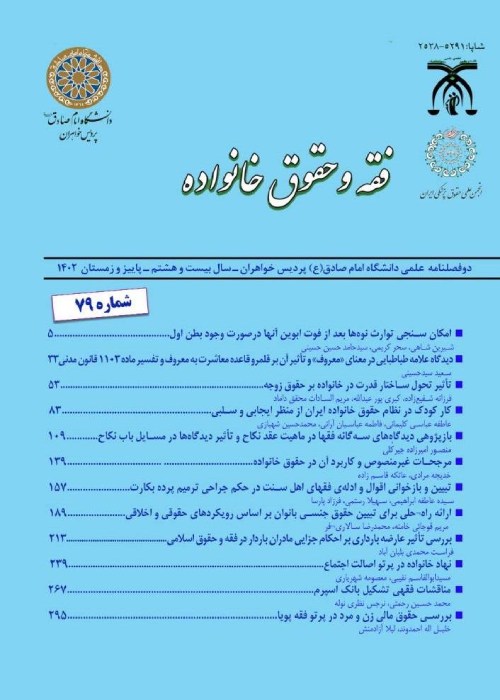Touba Shakeri Golpayegani
Page 5
private claim is a means of the realization of corporative criminal policy so as to involve citizens both victims and offenders – in a reaction to crime. Considering bilaterally, it grants the policy prefection as well as it establishes the ideals of the restorative justice by way of restricting the interference of the penal system and by changing the relevant factors into civil ones.In traditional criminal law a public prosecutor’s claim implies direct interference by the state in a reaction to a criminal action in cases where the public interest and common rights as well as the public order are violated as a consequence of a criminal act.In contrast to this, what the criminal policy, based on Islamic jurisprudence, takes additionally into consideration is the rights of citizens – those of both victims and offenders – that are threatened by the fact that the citizens’ rights are unequal due to their unequal positions vis – a – vis each other.In confirming the citizen’s corporative rights, the state holds the right to claim and penal reaction to crime by way of converting private claims on to public ones. This is because the citizens’ unequal positions annuls the core concept of corporation, which is the satisfaction of the mind, when it is applied as a reaction to crime, and can consequently pave the way for umcompensatable harm and increasing violation of the individual’s rights and freedoms.A claim of a juvenile homicide committed by the father is an example of such claims where the position of the child is naturally, customarily and characteristically unequal with that of the father and where the state controls the function of active corporation of citizens by putting itself into focus in treating the claim.



